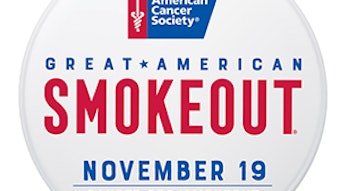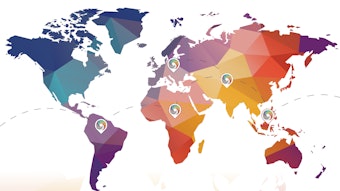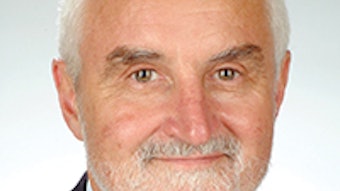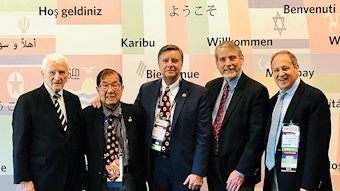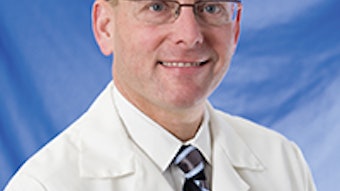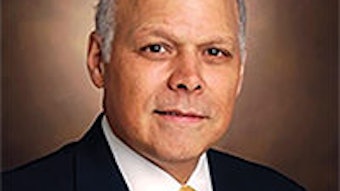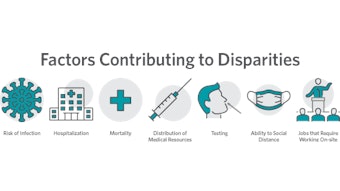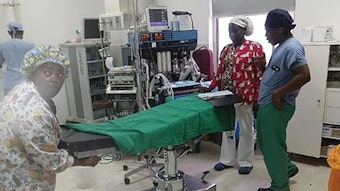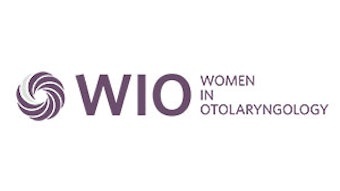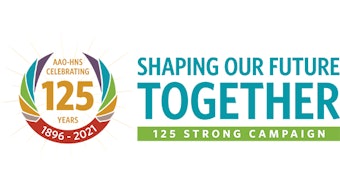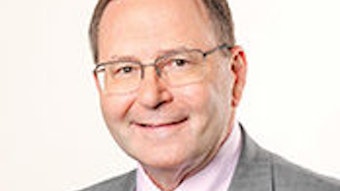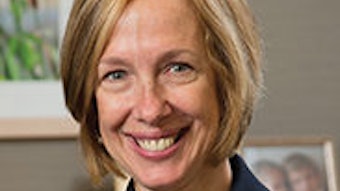Spotlight on Humanitarian Efforts: Chad A. Zender, MD
The Spotlight on Humanitarian Efforts recognizes AAO-HNS members who are contributing their time and expertise to otolaryngologic patient needs around the globe. These individuals demonstrate integrity and devotion to humanity through a self-giving spirit. They are outstanding models to emulate in fostering a globally otolaryngology community. For this spotlight, the AAO-HNSF International Affairs Program would like to spotlight Chad A. Zender, MD, for his work with Head and Neck Outreach (HNO)
The Spotlight on Humanitarian Efforts recognizes AAO-HNS members who are contributing their time and expertise to otolaryngologic patient needs around the globe. These individuals demonstrate integrity and devotion to humanity through a self-giving spirit. They are outstanding models to emulate in fostering a globally otolaryngology community. For this spotlight, the AAO-HNSF International Affairs Program would like to spotlight Chad A. Zender, MD, for his work with Head and Neck Outreach (HNO)
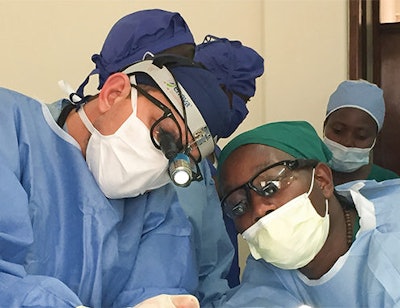
Where do you currently practice, and what is your specialty area?
In 2019 I started my clinical and administrative work at the University of Cincinnati College of Medicine as a professor in the Department of Otolaryngology along with several leadership roles including the Center of Excellence co-leader for head and neck cancer, University of Cincinnati (UC) Cancer Center, and as an associate chief medical officer for UC Health. My areas of specialty include head and neck cancer, head and neck reconstructive surgery, and endocrine surgery.
What humanitarian efforts are you involved with?
I am currently the president of a nonprofit organization called Head and Neck Outreach (HNO). I helped start this organization in 2014 after developing a collaborative program with Dr. Jeff Otiti and the Uganda Cancer Institute and Case Western Reserve University directed toward improving care for patients with head and neck disease through physician, resident, and nurse training. Over six years have passed since our first trip, and the organization remains committed to improving head and neck healthcare in developing countries through sustainable education, research, and surgical program development. To this end, HNO has facilitated care for over 400 individuals in Uganda, resulting in over 225 complex head and neck surgical procedures. The teams have consisted of over 70 surgeons, nurses, residents, and students from across the U.S. who are committed to the development of head and neck care globally. Together the teams hand carried and delivered over 3,500 pounds of necessary medical equipment and supplies to Kampala, Uganda, in order to outfit the surgical space and allow the local surgeons to continue care even after the teams return to the U.S. Most of these supplies were purchased secondarily through HNO’s partnership with MedWish, which receives medical supply donations when health systems or clinics close. Finally, HNO has also been instrumental in facilitating the opportunity for Ian Bwete, one of the outstanding residents identified through the organization’s work at Uganda Cancer Institute, to attend a year of advanced head and neck training as an international fellow in the U.S. He completed this training in 2019 and returned to Kampala as the second head and neck–trained surgeon in the country.
HNO also has a local commitment to those impacted by disparities in healthcare, specifically the homeless population and those who suffer from complications related to mental health illness. HNO has partnered with the Northeast Ohio Coalition for the Homeless, supporting numerous events and sponsoring “Street Chronicles,” a program that provides homeless individuals with an opportunity to sell newspapers for income. On a personal level, I also participate in UC’s head and neck screening clinics targeted to reaching underserved populations.
What got you started in committing your time and practice to humanitarian efforts?
I worked in the office of community outreach in college, both as a volunteer and then as an employee, which certainly stirred my interest. However, it was not until fellowship that I shared an experience with Dr. James L. Netterville and traveled to Nigeria with his well-established international outreach program. It truly changed my life and perspective as a young man from a small town in Ohio, seeing the impact you can have far beyond what you think is possible. He has become a dear friend, and I will always be indebted to him for that gift.
How does your work impact the communities you serve, and how does it affect you as a person?
Partnering with Dr. Jeff Otiti, Nurse Christina Tino, Dr. Ian Bwete, and other local clinical staff over the past six years has expanded the surgical care delivered at the Uganda Cancer Institute. We see ourselves in a supportive role helping them to care for the patients in their region with education, equipment, and technical support. The educational piece has been a wonderful aspect of our work, working with residents from Makerere University on each of our trips. We helped train Dr. Bwete as a resident during our surgical camps and then brought him to the U.S., where we worked to train him as a head and neck fellow. This work will have a greater impact than our surgical camps alone. Dr. Bwete is currently working at Mulago Hospital and the Uganda Cancer Institute, continuing to partner with Dr. Otiti and Nurse Tino.
Personally this work keeps me grounded and reminds me of how fortunate I am to care for patients every day. We can lose sight of our true purpose with administrative duties, paperwork, new policies, and other necessary distractors. The sacrifice and effort this work requires help to remind me that as a physician the “other” work should always take us back to our patients. The administrative work we do is a means to an end and should always focus on creating viable healthcare systems that can provide the best care possible for our patients.
What would you say to encourage others to support humanitarian efforts around the world?
The sacrifice and effort this work requires help to remind me that at the center of all of this is our patients. As I mentioned, I have shared this trip with over 70 participants, including nurses, students, residents, and other physicians. I see over and over the positive impact on young adults when they are taken outside of their daily comforts and able to recognize how fortunate we are to live in the U.S. For those who are more seasoned, humanitarian efforts have a way of providing a refreshing and new perspective on our daily work.
Any other final comments or thoughts?
As I am preparing for trips and feeling overwhelmed, I have asked myself on several occasions, “Why am I doing this?” The work required can be intimidating to say the least. However at the end of a trip, when you have had the opportunity to partner with local physicians and nurses, care for patients, and experience another culture in this capacity, the joy and fulfillment are remarkable. That feeling of purpose is what continues to drive the work, and hopefully after a turbulent 2020, we can get back to our colleagues and friends in early 2021.
